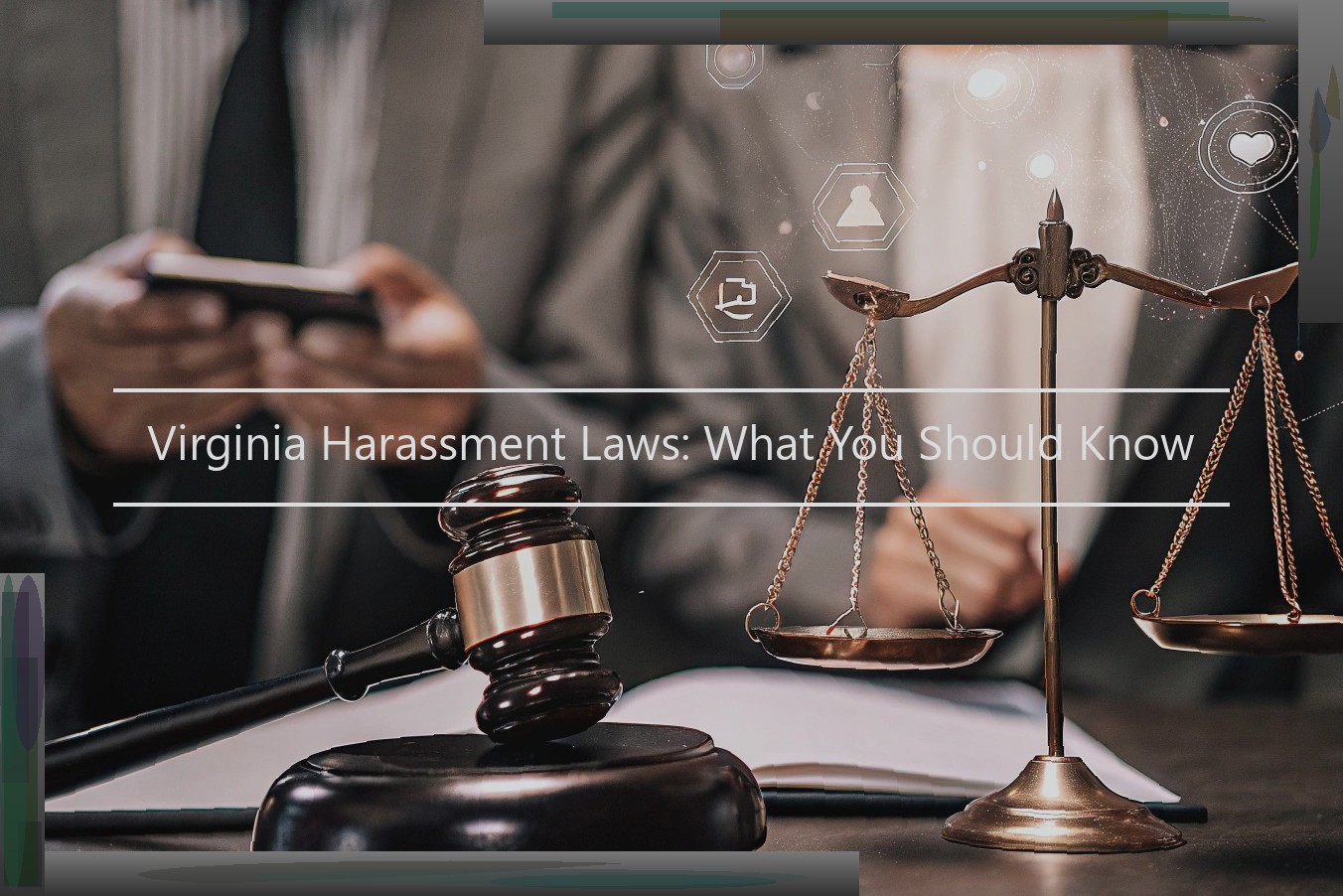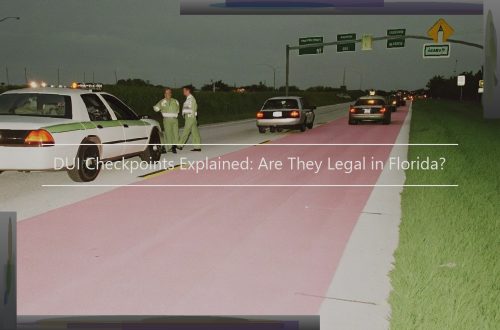Virginia Harassment Laws: What You Should Know
Virginia Harassment Laws Overview
Harassment laws in Virginia closely reflect those found at the federal level, as these laws are based on Title VII of the Civil Rights Act of 1964. Under the laws of Virginia state, as well as applicable federal laws protecting individuals against harassment, the fundamental principles are that the behavior must create an intimidating or abusive work environment based on the race, color, national origin, religion, sex, disability or age of the victim. For the purpose of these laws, harassment is defined as any type of unwelcome conduct that does not have to be criminal in nature .
In order for workplace harassment or harassment in an educational setting to be recognized by the law, it must not only involve unwelcome behavior, but also based on the above characteristics. Harassment cannot include consensual relationships, nor does it protect individuals from minor annoyances.
More often than not, harassment is directed at race, national origin or sex, though this is not always the case. In Virginia, there are also laws against harassment based on religion, disability and age. Failure to report a case of harassment can result in disciplinary actions for any teacher or school official who is made aware of the situation.

Types of Harassment in Virginia
In Virginia, there are various forms of harassment that are recognized by law. They include: physical, emotional, and cyberharassment. These types may overlap, but it is important to understand that when someone refers to "harassment," they may actually be referring to several forms of it.
Physical harassment This is probably the most widely recognized form of harassment and has been around for years. In fact, physical harassment is typically the first thing that comes to mind when one thinks of harassment in general. If you have had someone physically abuse you, whether in the form of a slap, a punch, biting, pushing, shoving, or anything else that causes another person to feel uncomfortable, or experience pain, that is physical harassment. It does not have to leave a bruise or cause pain, but if it makes someone feel uncomfortable in a physical way (even if only temporarily), it may be considered physical harassment.
Emotional harassment
This type of harassment has come to light mostly in the last two decades. The most common ways of emotionally abusing or harassing someone include name-calling, post emotional manipulation, and gaslighting. All of these are meant to manipulate someone into feeling either bad about themselves, or at the very least feeling as if they have done something wrong. Emotional abuse can also include making someone feel guilty when they ask for help, or just being overly dramatic or controlling about everything in their life. If someone cuts you down, or makes you feel ‘less than’ all of the time, that is emotional harassment.
Cyberharassment
This form of harassment has recently started becoming more recognized in Virginia. This is because more people are leaning on technology for communication these days. This form of abuse is when someone purposely harasses someone through social media, texts, or other channels. Usually, this comes in the form of negative comments on social media accounts or through emails. This type of harassment, although it may seem innocuous, can be extremely damaging to the victim’s reputation and can be traced back to the perpetrator’s IP address.
Consequences for Harassment in Virginia
In Virginia, harassment is considered a class one misdemeanor under Virginia Code §18.2-152.7:1. It is defined as any threat or act of harassment that would cause a reasonable person to be intimidated or fearful of bodily harm. This includes repeated and unwanted verbal and non-verbal conduct. Like most misdemeanor crimes in Virginia, if you are found guilty you could face up to 12 months in jail. However, the prosecutor could offer you a plea deal to a lesser charge as well as the possibility of alternative sentencing:
- 180 days of community service
- earn a GED for one-year (if needed)
- serve a one-year probation
- complete counseling
A guilty conviction of harassment also results in a permanent criminal record and damages your future. That is why it is vital that you retain an experienced criminal defense attorney to defend the charges against you.
Your criminal defense lawyer understands the complexities of Virginia criminal laws, as well as the defenses that may apply to your harassment allegations. These defenses may include:
- False accusations
- Self-defense (if the other person made any kind of threats at you first)
- Mistaken identity
- Honest misunderstanding (if the message was not overtly communicated)
If the victim fears for their safety, he or she may also be issued a preliminary protective order (restraining order). A preliminary protective order prevents offender contact via phone messages, social media, email, or in person, as well as blocks the offender from entering the victim’s home. If the judge thinks there is enough evidence and issues the restraining order, the offender will be civilly fined $500.
Reporting Harassment in Virginia
Harassment is a crime in Virginia. When someone is the victim of harassment, the victim should contact the police department and file a complaint. The police department will then begin what can be a lengthy process of resolving the victim’s case. Depending on the nature of the harassment, it may be assigned to a beat officer or an investigator. The process can sometimes take a few days or longer depending on the circumstances. Once the investigation has been completed, an arrest will be made.
Often victims are concerned whether they have to press charges . In Virginia, the criminal statute defines harassment as follows: ‘Any person who, without provocation, willfully engages in conduct directed at another person that would cause a reasonable person to suffer substantial emotional distress …’.
The point is that the offense is defined by the conduct which is accused. It makes no difference whether the victim wants to press charges if the factual allegations are sufficient to charge a crime. The Commonwealth Attorney’s Office will review the facts and make a decision as to whether the case should be prosecuted or not. A victim’s desire to see someone prosecuted will not always be realized. Crime victims have no special right to control prosecution.
Rights and Protections for Victims in Virginia
Victims are entitled to specific legal protections in Virginia that address their dignity, autonomy, and rights as the victim of a crime as well as other fundamental rights. Harassment victims are further protected under any relevant civil statute that directly pertains to their specific violation. As a general matter under Virginia’s statewide victim assistance law, victims are entitled to:
● Timely notice of proceedings;
● Notice of conferences/ hearings on capital murder cases;
● Notice of release, escape, or discharge of defendant (excludes juvenile adjudications);
● Notice of parole hearings;
● Notice of clemency proceedings;
● Employee leave to appear for court proceedings;
● Restitution rights;
● Free billing for long distance calls to the state victim assistance program; and
● Rights to be interviewed by the Parole Board. (VA Code § 19.2-11.2)
Victims may also have the right to leave work on the day of a court appearance (VA Code § 19.2-11.3), to be kept informed about information regarding the prosecution of the crime and to receive criminal history record information about the abuser (VA Code § 19.2-11.7), to participate in a victim-offender dialogue or mediation program (VA Code § 19.2-11.9), and of course they are also entitled to court ordered restitution (VA Code § 19.2-305.1).
In addition to the general rights outlined above, harassment victims may also be protected under Virginia’s specific harassment laws. In Virginia, it is illegal to "harass or intimidate" another person. "Harass and intimidate" means to communicate, with the intent to annoy, abuse, alarm, or seriously embarrass another person or to cause substantial distress. The harassing communication may be made verbally or in writing. Virginia’s anti-harassment law also prohibits the use of threatening, profane, obscene, or unwanted language in any medium to communicate with another person, either directly, indirectly, or by any third party (VA Code § 8.01-42.3). If a victim is successful in bringing a claim under Virginia’s anti-harassment law, he or she can be awarded up to $2000 in statutory damages.
Law enforcement officers must also inform victims of their rights under Virginia’s harassment statute, and if a person is discovered to have violated that statute an officer may issue a summons or a warrant to show cause or forward the case to the local prosecutor (VA Code § 17.1-805).
Victims of harassment in Virginia can find assistance with the Office of the Attorney General. The Office of Victim’s Services (OVS) provides support services, information, and resources to victims of crimes. Victims may request services on their own behalf, or family members and friends may call the office on behalf of a victim.
Updates and Changes to Virginia Harassment Laws
Understanding Virginia Harassment Laws: What You Need to Know
As with any area of law, Virginia harassment laws are subject to change. Over the last year, for example, we saw a flurry of lawsuits and legislative activity in response to the growing national discussion around sexual harassment. Below is a rundown of the most significant updates Virginia employers need to be aware of as 2019 looms.
SB 167 Returning a Verdict Without Consent
Since 2017, we’ve seen a national movement away from the "final verdict rule" for civil trials, often referred to as the "Bench Amendment" to the Federal Rules of Civil Procedure. Before, juries had to hold off on determining damages until after a verdict. This summer, Virginia followed suit. As of July 1, 2018, Virginia Rule of Evidence 48 states that juries may return a verdict on damages without first rendering a verdict on liability if both parties agree. The new rule is intended to expedite the trial process and make it more efficient.
SB 162 Victims of stalking; disclosure of records and services
On July 1, 2018, a new Virginia law went into effect that prohibits the disclosure by law enforcement agencies of certain records, photographs, and personal identifying information of victims of stalking and certain other crimes submitted by those victims or their family members. Victims and their family members are usually pushed to follow through with the reporting of a stalking incident well beyond what would be expected of the average citizen who discovers that a crime has been or might be committed against them. The intention of the new law is to encourage victims of certain crimes to report them so that those crimes can be investigated and prosecuted. Reported crimes often include stalking , clear and present danger of harm to the victim, and domestic abuse.
SB 118 Employment discrimination based on sexual orientation or gender identity; civil actions
SB 118, which Governor Northam signed into law, amends the Virginians with Disabilities Act to prohibit discrimination on the basis of sexual orientation, gender identity, or status as a nonmarital partner of an employee. Normally, to be a "qualified individual with disability" under the act, one must be both presently and actually disabled. SB 118 broadly allows this definition to account for those who are regarded as being disabled.
While the new law does not technically amend the existing Virginia employment discrimination statute, Va. Code § 2.2-3900 et seq., the new amendment to the Virginians with a Disabilities Act is important. The Virginians with Disabilities Act (increased protections for those with disabilities) aims to cross-reference all disabilities provisions in each of the existing laws, including the Virginia Human Rights Act, Title VII and its regulations, and finally, Section 504 of the Act. We have yet to see some of the new protections in action, since HB 162 will now protect not only those people who are actually disabled but also those who are perceived to be disabled. Again, we have yet to see how these new measures will impact the Virginia legislature.



